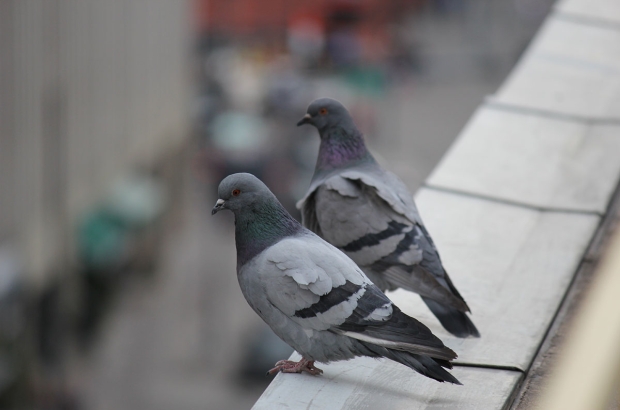- Daily & Weekly newsletters
- Buy & download The Bulletin
- Comment on our articles
Pigeon contraception in Ixelles is paying off
The use of contraceptives to curb the pigeon population in Brussels is resulting in a reduction of bird-related nuisances, according to experts.
The pigeon population in Belgian cities has been consistently increasing, RTL reports, particularly in Brussels. This results in corrosive droppings on buildings and damage to property.
Some local authorities, such as Ixelles, began experimenting with contraceptives as a solution that both limits and preserves the population.
Contraceptive seed dispensers containing a product called nicabrasil render the pigeons sterile without compromising their health.
Launched three years ago, the measure has already led to a 40% reduction in the pigeon population in the municipality.
“The initial results are encouraging,” a local authority representative said.
“Over the next few years, we hope to continue this significant reduction. However, the cost of these dispensers is around €10,000 per machine per year, a considerable investment for the local authority.”
The feeding of pigeons remains a subject of debate amongst residents, many of whom adore pigeons and have made feeding them a part of their daily routine.
“They have perfect plumage and bright eyes,” one Ixelles resident told RTL. “When they don't have food, they go out on to the roads. That puts them at unnecessary risk.”
But other residents have less love for the pigeon: “They dirty everything in their path, the droppings spoil the facades, and my balcony is constantly invaded,” another told RTL.
Brussels Environment has even acknowledged the problem with specific guidelines for rubbish collection that ask residents to put bags out “as close as possible to collection times, to prevent them from becoming pantries for pigeons”.
In addition to contraceptive seeds, contraceptive pigeon lofts are also being considered, although this solution is considered to be more expensive and demanding. These facilities are designed to attract pigeons to nest, whereupon their eggs are sterilised or replaced with false eggs, thereby limiting their reproduction.
“This requires daily management and continuous monitoring,” an expert explained, though pigeon lofts have the advantage of centralising the pigeons in defined areas, minimising nuisance for residents.
Feeding pigeons in the Belgian capital without authorisation remains an offence punishable by fines of up to €250.



















